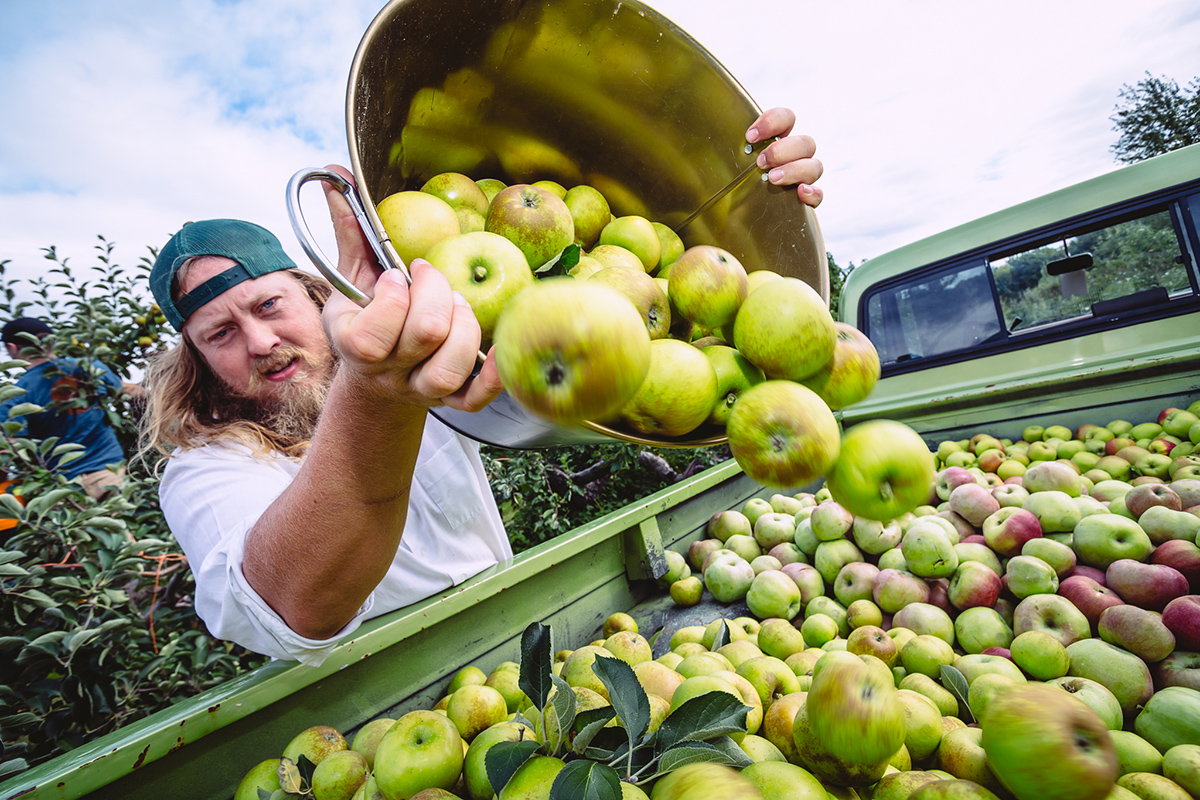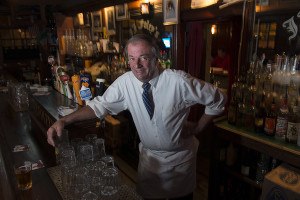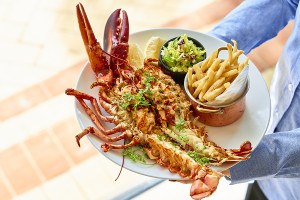Husk Cider to Debut at Row 34 and Island Creek Oyster Bar

CJ Husk at the Nichols Tenney Farm in Hollis, New Hampshire / Photo by Natasha Moustache
Dry, subtly sweet, bright, and lively, a crisp cider like the soon-to-be-tapped Husk can be an elegant accompaniment to a briny, buttery Island Creek oyster. At the two Boston restaurants affiliated with the acclaimed Duxbury farm, this pairing is all in the family.
Husk Cider, a small-batch fermentation by Salem’s Far from the Tree cidermakers using New England apples, premieres on draft next week at Row 34 and Island Creek Oyster Bar. The cider was made in collaboration with Row 34 beer manager Megan Parker-Gray, beverage leader Jackson Cannon, and CJ Husk, the “oyster dude” recognized by his flowing blond locks and meticulous shucking skills.
Named for Husk, perhaps now he will be known for growing rarely-seen heirloom apples on his property, the Nichols Tenney Farm in Hollis, New Hampshire.
Husk, an Island Creek Oyster Farm employee, took over land that has been in his family for three generations, and Parker-Gray, Cannon, Far from the Tree owners Al and Denise Snape, Husk, and a couple others hand-picked the apples from his orchards, the Boston Herald first reported this fall.
“The progression of the cider itself started over the summer with this amazing idea from Jackson to make a cider with the incredible apple varietals on CJ’s family farm that we don’t see a lot at the orchards across the region,” Parker-Gray says.
That includes Roxbury Russet: one of the oldest North American varietals, which was first found in Roxbury, but fell out of common use during Prohibition. The Snapes had never seen the apples before, though they had always heard they made excellent cider, Denise Snape says.
“We feel passionate about using Massachusetts apples, but most of what’s available are dessert apples, like Cortlands and Macs,” she says.
The Island Creek team is excited to pay homage to CJ, whom Cannon says is “like a walking Coolest Man in the World ad. He’s comfortable with paupers and kings. He’s in touch with the land. The farm was not being worked commercially for the last generation, and CJ is returning it to fully functioning status. It’s inspiring.”
Husk’s grandfather planted the apple orchards just because he loved them, Parker-Gray said. Vegetables and livestock were the main sources of income.
Al Snape also selected Northern Spy and Golden Russet apples from the orchard to round out the cider’s flavor, which is dry, crisp, and earthy, he says. The pickers filled the bed of his 1971 GMC pickup truck with apples. Then, using a vintage press they found at the Husk family farm and another antique the Snapes own, the team hand-pressed the apples in FFTT’s tasting room. Parker-Gray, Cannon, and a few of their colleagues tasted the blend in stages, helping to make decisions like sweetening it with maple syrup and letting it ferment in the open, with only wild yeast from the fruit.
“It was very collaborative,” Denise Snape says. “As a company, we’re trying to figure out ways to appease everybody’s different clientele and what people’s palates are,” she says, so this was a fun project to work directly with the people who serve their product at restaurants. Commissions like the Husk Cider are something Far from the Tree wants to do more of, she adds.
The months-long project yielded just under 100 gallons of cider, or three kegs each for Row 34 and Island Creek Oyster Bar. The first keg will be tapped Thursday, February 11 at 5 p.m. at Row 34, followed by the inaugural tapping at ICOB at 8 p.m.
“Whichever neighborhood you’re in, or if you want to hang with us all, CJ will be at both shuttling in truck in between,” Cannon says.
$7 for 13 ounces, Row 34, 383 Congress St., Boston; row34.com.
$7 for 13 ounces, Island Creek Oyster Bar, 500 Commonwealth Ave., Boston; islandcreekoysterbar.com.


